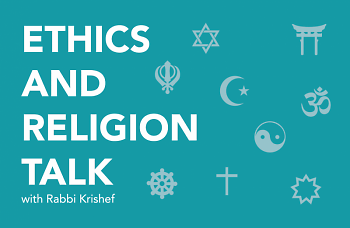Fred Stella, the Pracharak (Outreach Minister) for the West Michigan Hindu Temple, responds:
“Indeed, there are. Quite a few. I’ll share the ones I see as most common.
“Hinduism is often simplistically dismissed as being polytheistic. There is no escaping that we do have a pantheon of deities, and they do adorn our altars. But our scriptures clearly indicate that the various gods and goddesses are expressions of the One Absolute. (‘The source and origin of the gods, ruler of all, May Supreme God, the great seer, who anciently created the golden germ, endow us with clear intellect.’ - Svetasvatara Upanishad III.4)
“Then, of course, there is the notion that we ‘worship’ cows. If taken literally, this would mean that we actually see cattle as a higher form of life than humans. That would be nonsense. What we do is venerate our bovine friends; acknowledging their generosity, as they offer us food (dairy), labor (plowing), fuel (dried dung) and hides (after a natural death). The Dharma states that Divinity is hidden in all life forms, but some species express it more fully. Humans are considered the crown of creation, having the capability to conceive of divinity.
“The caste system is always fodder for conversation. Many non-Hindus believe class bigotry is as inextricable from Hinduism as Ramadan is to Islam or the Trinity to Christianity. This is far from true. Yes, there are still plenty of devotees who hold onto this ancient superstition, and it is up to Hindus of good faith to root out this poison.”
The Reverend Colleen Squires, minister at All Souls Community Church of West Michigan, a Unitarian Universalist Congregation, responds:
“The greatest misconception about Unitarian Universalism is that many think we can believe anything we want and suffer few consequences. People think our religion is easy. The truth is we do strive to live with high ethical standards. While it is true we believe in theological diversity we also must show respect for differing views. Regardless of what an individual believes we must affirm the inherent worth and dignity of every person.”
Father Kevin Niehoff, O.P., a Dominican priest who serves as Judicial Vicar, Diocese of Grand Rapids, responds:
“That Catholics practice idolatry! The reason this is asserted is that Catholic Churches often have statues and paintings of individuals who are remembered for their works and holiness.
“Some religious traditions have the concept of intercessory prayer. This is the concept of having someone pray for you and your intentions. The Catholic Church extends this concept of intercessory prayer to those who were marked with the sign of faith, have died therefore going before us, and are born into eternal life.
“In honoring the memories of these holy ones, beautiful statues and paintings are created to remember the saint and his/her life. These images are not worshipped. These images are a reminder of and a call to each member of the faithful to live lives of holiness. And, yes, we ask these saints to pray for us the same way we ask a spouse, family member, friend, or fellow person of faith to intercede for us and our needs.”
Father Michael Nasser, who writes from an Eastern Christian perspective and is Pastor of St. Nicholas Orthodox Christian Church, responds:
“The use of icons in both congregational worship and in our personal devotion is always a curiosity, both to non-Christians and Christians of other traditions. The reactions span the gamut from appreciation and inspiration all the way to suspicion and accusation of iconography as idolatry. To understand what seems to be such a strange practice, we need look no further than what most of us find very ordinary in our home use of both art and depictions of our loved ones. Icons remind us of God’s activity in the saving acts recorded both in the Bible and in the lives of those heroes of the faith who show us such great examples of true and faithful followers of Christ.”
Rev. Ray Lanning, a retired minister of the Reformed Presbyterian Church of North America, responds:
“Perhaps the greatest misconception about the Reformed faith is the idea that we are God’s special pets, chosen for salvation because we are smarter, wiser, holier, or better than others. Bad enough that others see us this way! Even worse, those of us born and reared in the church all too easily fall into this fatal self-deception. At the heart of our faith is the confession that ‘we and our children are conceived and born in sin, and therefore are children of wrath, insomuch that we cannot enter in the kingdom of God except we are born again’ (Form for Baptism). Reformed Christians are sinners saved by grace alone, through faith in Jesus Christ (Ephesians 2:8, 9).
This column answers questions of Ethics and Religion by submitting them to a multi-faith panel of spiritual leaders in the Grand Rapids area. We’d love to hear about the ordinary ethical questions that come up in the course of your day as well as any questions of religion that you’ve wondered about. Tell us how you resolved an ethical dilemma and see how members of the Ethics and Religion Talk panel would have handled the same situation. Please send your questions to [email protected].
The Rapidian, a program of the 501(c)3 nonprofit Community Media Center, relies on the community’s support to help cover the cost of training reporters and publishing content.
We need your help.
If each of our readers and content creators who values this community platform help support its creation and maintenance, The Rapidian can continue to educate and facilitate a conversation around issues for years to come.
Please support The Rapidian and make a contribution today.
